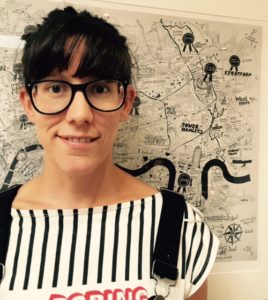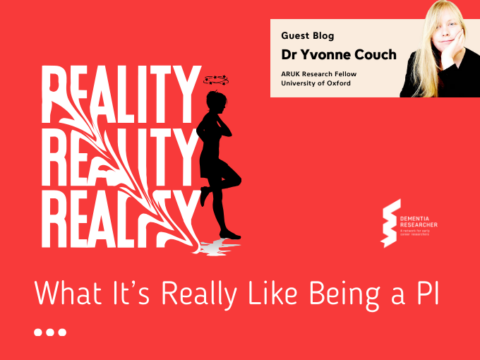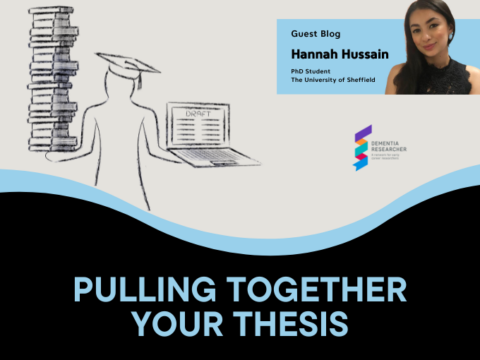I have recently realised that I am more my own boss than ever before. One of the main factors that has made this possible is my fellowship application. I feel incredibly privileged, but yet, I am not quite used to it yet. It feels a bit scary and a little bit like have been set adrift and I might just get it wrong gah. I have spent quite a bit of time working this out recently, reflecting on boss-like skills and working out that I do actually have a wonderful support structure in place- so I definitely don’t need to panic- right?
Before becoming an academic I was employed as a speech and language therapist in the NHS. But before this I had other jobs; bar work (lots of different bar work jobs), I taught a tiny bit of ice-skating and of course I had a paper round. All of these jobs were essentially jobs where I had a clear line management structure in place. I was employed by someone else to do a job, and my work was generally overseen by someone else more senior than me. Despite taking steps to work in more ‘lone’ roles in the NHS, I was always part of a team. There was always a doctor who led the team and took ultimate responsibility. I decided what to do in my day-to-day work, I would prioritise the interventions and plans with my clients. But if push came to shove, there was a medic or a manager or a supervisor who I could turn to, to get approval.
Now, as a PhD student life wasn’t much different. In fact it all worked quite well for me- I could be very independent and get on with my work. Yet I would run plans and ideas past my supervisors. I had regular meetings where I would ‘save’ any decision-making to be discussed. We would spend time thinking about protocols, plans and timelines and generally run it all past the supervisory team. And of course, they took the last look at any manuscripts or chapters being submitted for publication/thesis.
Does this lead me to thinking that perhaps I don’t have the skills to make my own decisions? Perhaps. It feels a little scary to think that ultimately, I am responsible for the rather large amount of money I have been given by the NIHR to spend on 5 years of research. On some days I want to run back to my old supervisors and double check I am doing everything right. I want to knock on their door and ask them to rigorously examine every document I write. On the other hand, I am excited that I am leading this. And I must remind myself that I am not on my own- at all. That is what makes it so wonderful.
Firstly, I have four wonderful mentors. Using them wisely will ensure I have all the feedback I need. I meet with them regularly- and each of them brings different expertise and wisdom to the study. They all have an overview of my Gannt chart- which I tend to flash before their eyes at some point in each meeting. So, I know they will be asking appropriate, critical and useful questions to keep me on the straight and narrow.
Secondly, I have a plethora of collaborators. I feel so lucky to have so many wonderful people interested in being part of the work I do. Across three work packages I have collaborators from all over the world, and across NHS trusts in England and Wales. I am learning from these collaborators, indeed many of them are teaching me the methodological processes I will then jointly undertake with them.
Thirdly, I have a steering group. I have identified 6 people, across academia, health and with lived experience, who will meet with me three to four times a year on zoom. They are specifically tasked with keeping me to task- making sure I am doing what I say I am doing. Rather like an executive board, I anticipate this group will tell me quite directly if I am heading off piste.
Fourthly, my Patient and Public Involvement group are my guides. As people with dementia and their families many of them have contributed to developing the research plans for my fellowship. My work is inspired by them, designed with them in mind and hopefully refined by their advice to ensure it meets their needs.
Fifth, I am of course accountable to my funders. Those that hold the purse strings still need a regular update, a report on where the money is being spent. I need to demonstrate and account for my decision making. As investors the NIHR will keep an eye on me.
Sixth, my training plan is relatively comprehensive. I genuinely feel I know nothing at times, and training is essential to continue my development. Luckily my fellowship plans include a detailed and comprehensive training plan, partially comprising courses and partially shadowing.
Seventh, the team I am building will include my very own PhD student and a health economics analyst. As a team player, I know my team will support me too.
The more I write the more I know I am well supported; I have a network of people I am accountable to and who will hold me to account. Being my own boss is looking more attractive and a lot less scary now.
Author
Dr Anna Volkmer is a Speech and Language Therapist and researcher in Language and Cognition, Department of Psychology and Language Sciences, University College London. Anna is researching Speech and language therapy interventions in language led dementia and was once voted scariest speech and language therapist (even her children agree).

 Print This Post
Print This Post




